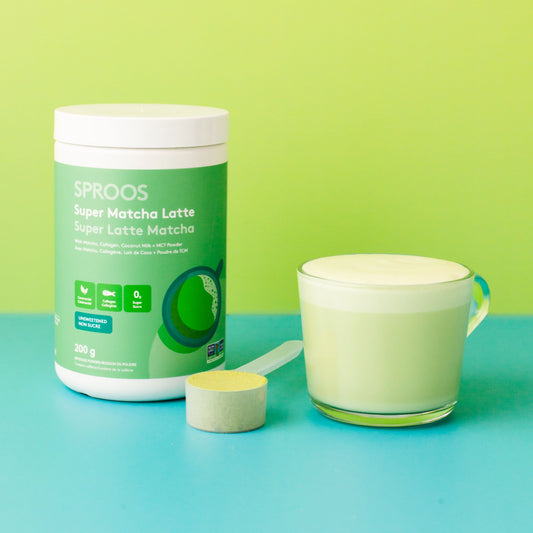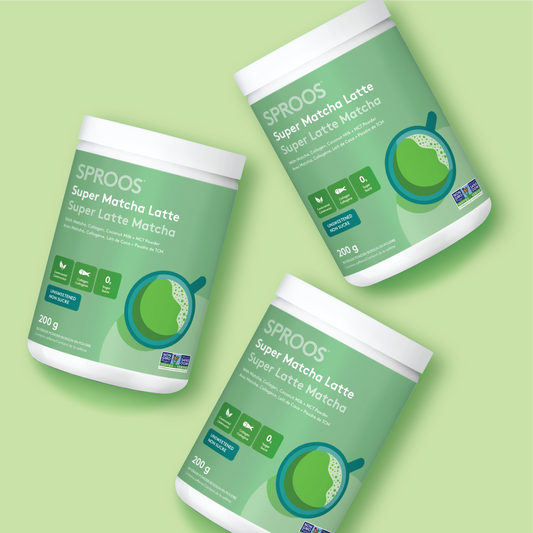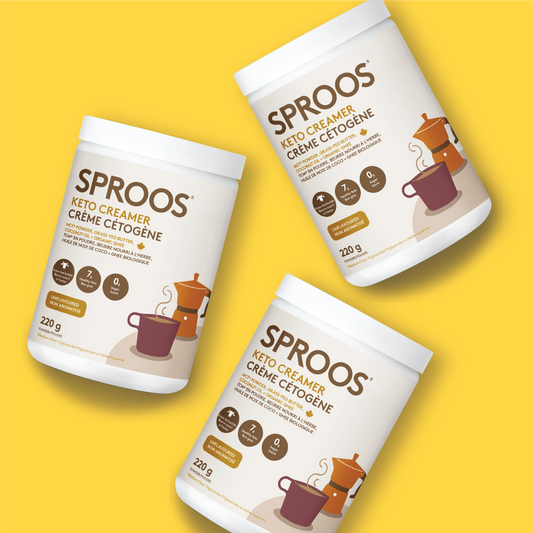What Is Intuitive Eating?
Let's start with what Intuitive Eating is not. Intuitive Eating is not eating anything and everything in sight all the time without a care in the world. It is also not a diet, but a way of eating that is unique and innate to you.
Intuitive Eating takes into consideration your body's specific needs and preferences, as well as your hunger and fullness levels. We were all born intuitive eaters in the way that we would cry to communicate our hunger, eat when we're hungry and stop when we're full (usually by turning our head away or closing our mouth).
And then diet culture happened; a body of information that told us we can't trust our own body, trust ourselves around food or possibly know what our body needs to thrive. Through that process, we've stopped listening to our body and now feel more stuck than ever when it comes to food and issues surrounding food, such as weight.
Intuitive Eating, however, will take you through the process of rebuilding a positive relationship with food and teaching "gentle nutrition" so you have all of the tools you need to best support yourself.
There are 10 principles of Intuitive Eating:
1. Reject the diet mentality
This initial step requires stepping away from diet culture entirely. That means, straying from the dieting world, throwing out diet-related magazines or unfollowing diet-related Instagram accounts. In order to move forward with the intuitive eating process, you need to be able to fully comprehend that dieting does not work and is not a long-term solution to live a healthy life, which you'll do by learning how your body responds to dieting (hint: very negatively).2. Honour your hunger
Learning to honour your hunger, a biological signal, is the first step to rebuilding trust with yourself and with food. Your body is a primitive being and it needs to know it has on-going access to food. When it doesn't (as is the case when someone is dieting), you are more inclined to overeat, especially when you reach the stage of excessive hunger.3. Make peace with food
Giving yourself unconditional permission to enjoy all foods will allow you to enjoy all foods in moderation. When we remove the "good" and "bad" labels we project towards food, we're able to remove the novelty associated with them. When we restrict ourselves of certain foods, naturally we're going to want them more. This principle involves neutralizing all foods and taking the power we project away from them.4. Challenge the food police
Straying from diet culture is one thing, but straying from diet-induced thoughts will be an on-going challenge. This step involves having a heightened awareness of your thoughts and teaches you to determine whether they are coming from a diet-focused place, or whether you are actually honouring your unique needs and preferences.5. Respect your fullness
Learn how to honour signals that tell you when you're full without exercising willpower or self-control (which doesn't truly exist when we're referring to primitive beings such as humans). You'll learn how to pause throughout the meal and decide when you're content and have had enough.6. Discover the satisfaction factor
Bring pleasure back to meal time and discover what happens when you eat food you genuinely enjoy that excites you. This goes for the type of food you're eating and the environment you're eating in. Receiving satisfaction from your food and meal time plays a huge role in rebuilding a positive relationship with food.7. Honour your feelings without using food
Food is one of the most socially acceptable ways we've been taught to cope with feelings of pain and discomfort, but the relief we experience from turning to food to cope is temporary and fleeting, and often met with more negative consequences. Principle #7 will teach you how to comfort, nurture and resolve your issues without using food, and how to differentiate between an intuitive eating cue and an emotional eating cue.8. Respect your body
Part of the intuitive eating process is respecting your body and your genetic blueprint. Just like someone who wears a size 8 in shoes wouldn't expect to squeeze into a size 6, it's equally as realistic to have the same expectation about your body size. It will be easier to fully reject the diet mentality and move forward with the intuitive eating process. when you are less critical about your body size and shape.9. Exercise and feel the difference
Part of rejecting the diet mentality and respecting your body is engaging in forms of movement that you genuinely enjoy, rather than focusing on the calorie burning aspect of exercise.10. Honour your health (via "Gentle Nutrition")
The last step after rebuilding a positive relationship with food is introducing nutrition again, but "Gentle Nutrition", which means to honour what your body and taste buds are yearning for, while prioritizing food that makes you feel good. Remember, that you don't have to eat a perfect diet to be healthy (and perfection is often what keeps us constantly "starting fresh on Monday"). You can eat chocolate and pizza in the same day that you enjoy a leafy green salad. It's what you eat consistently over a period of time that matters as suggested by dietitians and authors of "Intuitive Eating: A Revolutionary Program That Works" Evelyn Tribole and Elyse Resch.In a nutshell, Intuitive Eating is:
- Rejecting the diet mentality and diet culture as a whole
- Incorporating mindful eating principles and bringing pleasure back to meal time
- Giving yourself permission to enjoy all foods
- Enjoying food without guilt, judgment or future punishment
- Honouring hunger and satiety levels
- Respecting your body and genetic blueprint
Who Can Benefit From Intuitive Eating?
Almost anyone can benefit from Intuitive Eating, especially those who are looking to escape diet culture. Remember that we were all born as intuitive eaters and it really is the most natural way for us to eat. Clinical studies prove that intuitive eating is a sustainable way to engage in healthy behaviours and reap health benefits long-term such as weight maintenance, improved psychological health and possibly improved physical health indicators (i.e. blood pressure, cholesterol levels). Intuitive Eating may not be recommended for those who have been diagnosed with an Eating Disorder (anorexia, bulimia, orthorexia), are pregnant and/or breastfeeding or have been diagnosed with a chronic illness.How To Get started On Your Intuitive Eating Journey
The best way to start eating intuitively is to go through the 10 principles of Intuitive Eating, starting from the very beginning. I strongly recommend picking up the book "Intuitive Eating: A Revolutionary Program That Works"by Evelyn Tribole and Elyse Resch to guide you through the process and work with an Intuitive Eating coach. Start by cleaning up traces of diet culture in your current life, whether that’s in your social media newsfeed, magazines or diet-related apps. Tune into those cues from your body and pay attention to what your body wants in a given moment. Explore what happens when you eat the food you want in a given moment. Recognize that the process is linear and you will experience "setback", but it doesn't mean you aren't doing it right. There is no "right" or "wrong" when it comes to Intuitive Eating. It's all about approaching things with curiosity, rather than judgement to explore what it is your body needs to thrive and feel its best.
What to learn more about Intuitive Eating? Check out Rachel's recent podcast episode Intuitive Eating: What It Is, What It's Not & Why It's The True Solution To Healthy Living with Evelyn Tribole
Rachel Molenda
Intuitive Eating Nutritionist
Rachel Molenda (@rachelmmolenda) is Toronto-based Intuitive Eating Nutritionist and Host of the Fill Your Cup Podcast, on a mission to help women obsess less and make peace with food and their bodies. Rachel brings her non-restrictive, whole foods-based approach to the healing work she does with burnt-out women who are tired of chronic dieting to help them establish a healthy relationship with food and their body.























